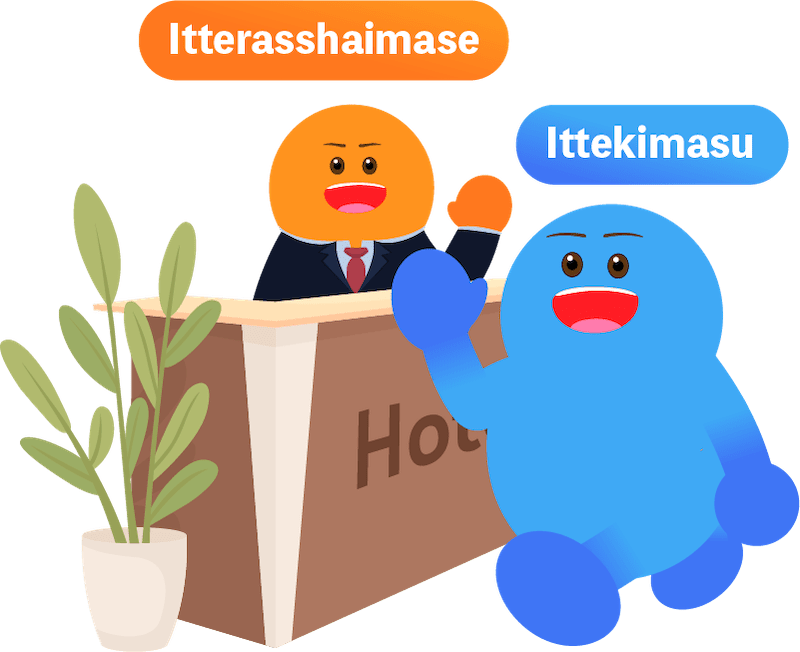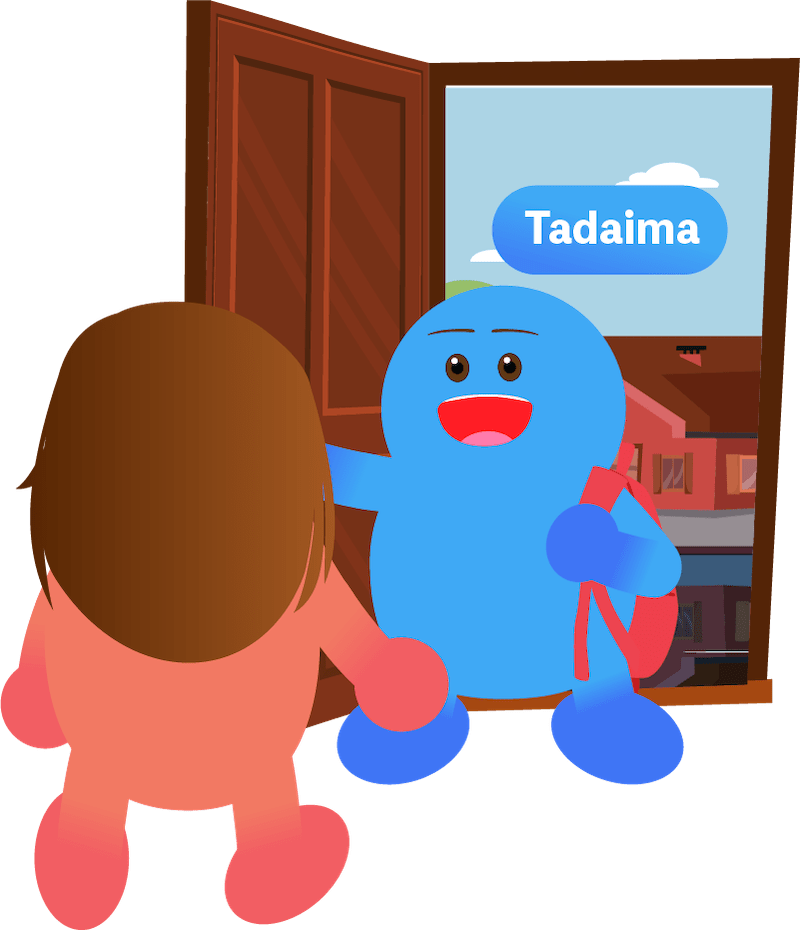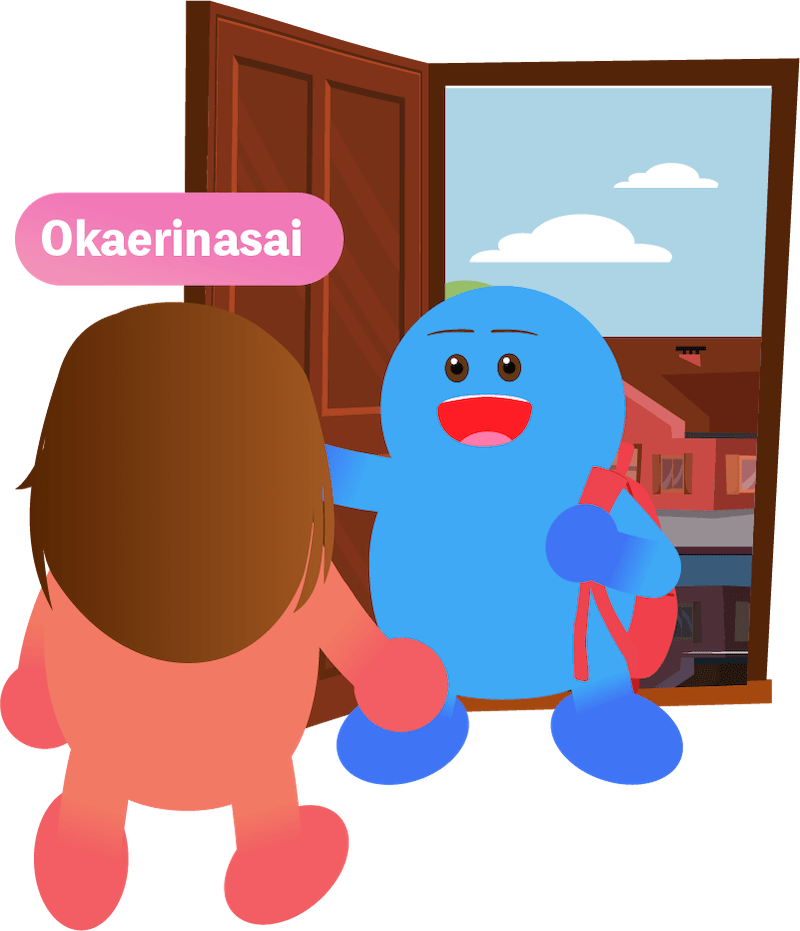When we leave home, we say:

Ittekimasu
It literally means “I’ll go and I’ll come back”.
Pronouncing this word from the romaji might be tricky.
When you see two consonants together (like 'tt' in 'ittekimasu'), you'll want to stress the syllable before and take a brief pause before continuing with the rest of the word.
In response to Ittekimasu, we say:

Itterasshai
This phrase means "Please go and come back", but it carries the sentiment of "Come back safely".
It's usually said after someone says Ittekimasu but you can also use it whenever someone is leaving home, even if they don't say it first.
For instance, if your teenager storms out without a word, you might still call out Itterasshai after them.

A complicated age, right?
While staying at a hotel in Japan, the staff might say Itterasshai as you're heading out.
Actually, in this case, they probably say:

ItterasshaiMase
which is a more formal and polite version.
And it's perfectly fine to respond with Ittekimasu.
*Just remember, it's not common to initiate Ittekimasu to hotel staff yourself so only say it in response.
When you return home, the phrase to use is:

Tadaima
It literally means "Right now", but it's a shortened form of:
TadaimaKaerimashita
meaning "I have come home right now".
When someone comes back home, you say:

OkaeriNasai
Often translated as "Welcome home" or "Welcome back".
This phrase originally conveys gratitude for someone's safe return.
The casual form is just:
Okaeri
With your family, you can use either one but with someone you speak to in Keigo, like a parent-in-law, you should opt for the full OkaeriNasai.